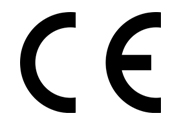Does the SPC Regulation apply to drug-device combinations (paclitaxel diluting stent)?
November 2017
In proceedings relating to Boston Scientific’s application for a supplementary protection certificate ("SPC") for a stent having Paclitaxel as an integral part, the German Federal Patent Court has stayed the proceedings by decision of 18 July 2017 (14 W (pat) 13/16) and has referred to the European Court of Justice ("CJEU") the controversial question whether Regulation (EC) No. 469/2009 concerning SPC for medicinal products ("SPC-Regulation") applies to combinations of pharmaceuticals and medical devices ("drug-device combinations"). In detail, the German Court asks the CJEU, if an authorisation granted for a drug-device combination pursuant to Art. 1 (4) of Directive 93/42/EEC ("Medical Devices Directive") has to be considered equivalent to a marketing authorisation according to Directive 2001/83 EC ("Medicinal Products Directive"), if the drug component has been examined for quality, safety and usefulness by an authority for medicinal products of an EU member state in a procedure comparable to the relevant procedure under the Medicinal Products Directive.
The German Court would like to answer the referred question in the positive. It argues that the wording of Art. 2 SPC-Regulation only excludes the grant of SPCs for pure medical devices, but not for drug-device combinations. Taking into account the sense and purpose of that provision it should rather be crucial whether the authorisation in question meets the procedural and substantive requirements for an authorisation of the Medicinal Products Directive.
As there have been divergent decisions of the courts in the Member States (and even of the different Senates of the German Patent Court itself) on this issue in the past, the Court, however, refrains from deciding the case, but asks the CJEU for clarification (case C-527/17).
Facts of the German case
The referral relates to Boston Scientific’s request for a German SPC for the (second medical) use of paclitaxel for the local administration to dilated blood vessels for the treatment of restenosis. The request was based on the European Patent EP0681475 ("therapeutic inhibitors of vascular smooth muscle cells") and on a CE mark issued by the notified body (in this case: TÜV Rheinland) authorising a stent which incorporated paclitaxel as an integral part. The German Patent Office rejected this request arguing that the product in question lacks a marketing authorisation (in the sense of Art. 2 SPC Regulation).
The view of the German court
The German Court disagrees with the German Patent Office. It holds the view that the SPC Regulation does not necessarily require a marketing authorisation according to the Medicinal Products Directive. Pursuant to the German Court, the existing case law of the CJEU rather suggests that an authorisation falls within the scope of the SPC Regulation if it meets the procedural and substantial requirements of an authorisation for medicinal products. According to the referring court this requirement is fulfilled in case of drug-device combinations pursuant to Art 1 (4) Medical Devices Directive. Insofar, the Court points out that while drug-device combinations are only governed by the Medical Devices Directive, the drug component must undergo a testing procedure which is comparable to the procedure according to the Medicinal Products Directive and corresponding guidelines.
In detail, the German Court explains that, before granting a CE mark, the notified body has to carry out a conformity assessment procedure with regard to the medical device in question. In case of a drug-device combination, the notified body is obliged to involve an authority for a medicinal product of an EU Member State in this conformity assessment procedure by means of a consultation process (in the present case TÜV Rheinland has chosen the Dutch authority). In the course of this process, the drug component of the medical device undergoes a testing and evaluation procedure comparable to the testing procedure according to the Medicinal Products Directive. At the end of the consultation the authority for medicinal products delivers an expert opinion on quality, safety and usefulness of the drug component, which meets the same standards as an authorisation for a medicinal product.
In this context, the Court considers irrelevant that the drug-device combination does not undergo an administrative authorisation procedure as required by the wording in Art. 2 SPC Regulation. While it concedes that the notified bodies are not public authorities it notes that they are vested with public authority. Furthermore, it considers sufficient that the conformity procedure for drug-device combinations has the same obligatory character as an administrative procedure. This is because, the notified body cannot disregard the opinion of the respective authority for a medicinal product, i.e. if this authority gives a negative opinion with regard to the drug component, the CE-mark cannot be granted for the drug-device combination.
Finally, the German Court argues that this interpretation of the SPC Regulation – i.e. that it also applies to CE-marked drug-device combinations – is (alone) consistent with the sense and meaning of this regulation, namely to incentivise further pharmaceutical research and development activities. For, if the scope of the Regulation did not extend to drug-device combinations, it would not be possible for the patent owner to receive a compensation for the long duration of the authorisation and certification procedures required with regard to the drug component of such products.
In view of the conflicting decisions of the courts of the EU member states a decision of the CJEU on this issue is most welcome. Hopefully, it will provide the much needed clarification.
If you have any questions on this article or would like to propose a subject to be addressed by Synapse please contact us.



Dr Britta Bröker
Britta is a knowledge management lawyer in Germany in the Patents & Pharma and Trademarks & Design groups.
"The German court argues that the wording of Art. 2 SPC-Regulation only excludes the grant of SPCs for pure medical devices, but not for drug-device combinations."

